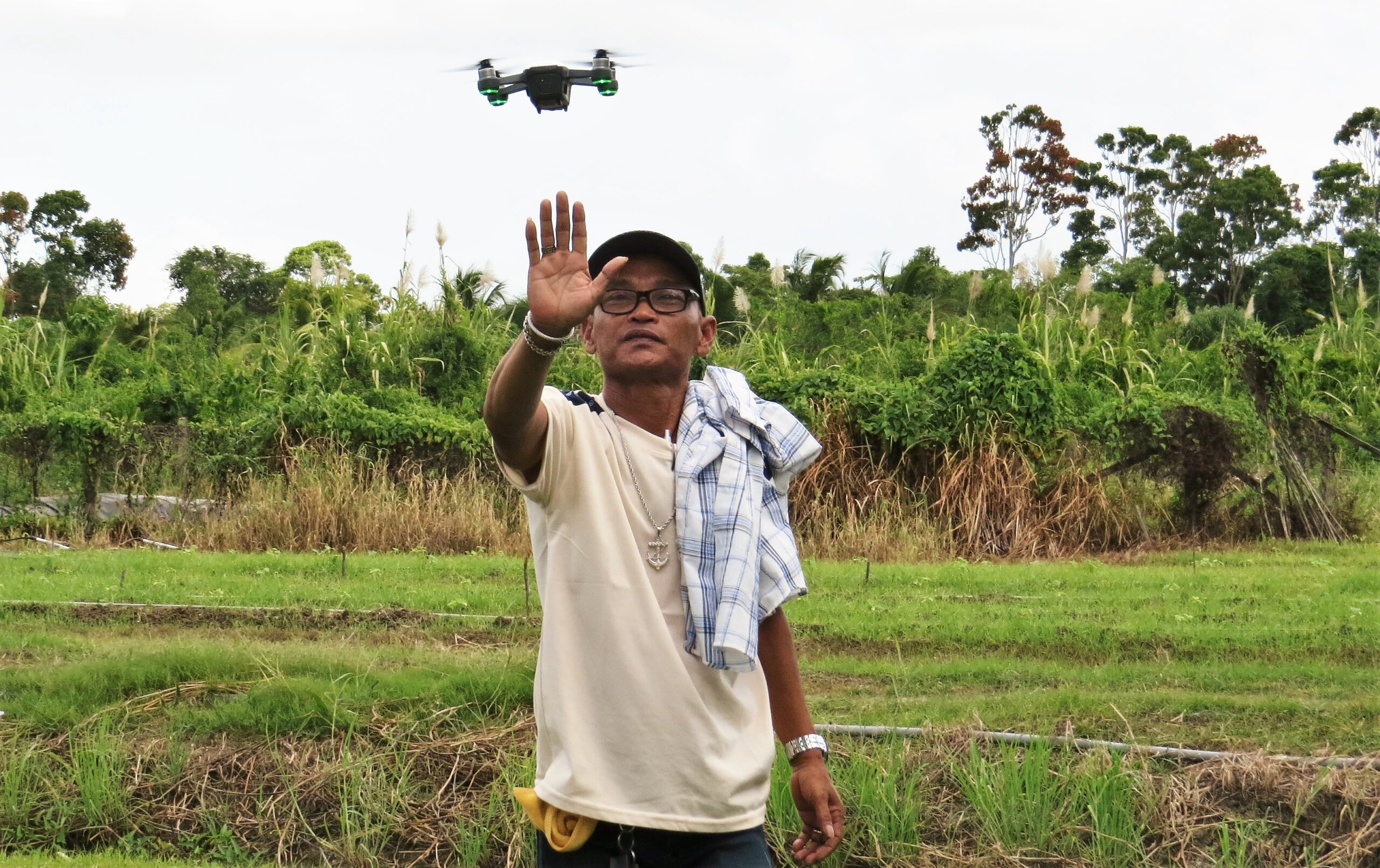The workshop sought to expose stakeholders to modern digital modeling tools and the operation of drones

The training, entitled “Geospatial 3D- Modeling Tools for Evident Based Decision making in Agriculture Disaster Risk Management”, took place between November 4 to 7. It was attended by extension officers of the Ministry of Agriculture, Animal Husbandry and Fisheries (MAAHF), educational institutions and technical officers of Het Overliggend Waterschap Multipurpose Corantijn Project/ Water Management Department (OWMCP) in the district of Nickerie.
The workshop sought to expose stakeholders to modern digital modeling tools and the operation of drones, which can significantly enhance and facilitate decision making on the ADRM through the timely and high-quality information. In addition to agricultural and environmental planning, these same knowledge and skills sets can be utilized by the targeted officers in socioeconomic development planning, particularly in the many remote rural communities in Suriname.
The CEO & Founder of Garden Pool, Dennis McClung; and Chaney C.G. St. Martin, International Specialist in Water and Soil Management of IICA, led the training sessions to 16 representatives of the various organizations participating in the workshop.
Under other activities of the project in Suriname, a total of 302 agricultural extension officers, students, youth, and farmers have been exposed to training in good ADRM practices to ensure the sustainability of agricultural production in the country.
The training activities are complimentary to an ADRM Strategic Plan being finalized for Suriname under the same FAO project. In August, Dimitris Herrera Hernández, Climate Variability Expert and Postdoctoral Associate at Cornell University, New York, led another workshop entitled: “Climate Variability Modeling Tools for Evidence- Based Decision Making in Agriculture Disaster Risk Management (ADRM)”.
These workshops are financed by the Food and Agriculture Organization (FAO). IICA is the executing agency for a component of the project in Suriname, in collaboration with the Ministry of Agriculture, Animal Husbandry and Fisheries (LVV), which focuses on building capacity in Agricultural Disaster Risks Management (ADRM).
More information:
Curt Delice, IICA’s Special Affairs Coordinator for the Caribbean Region/Representative in Suriname











